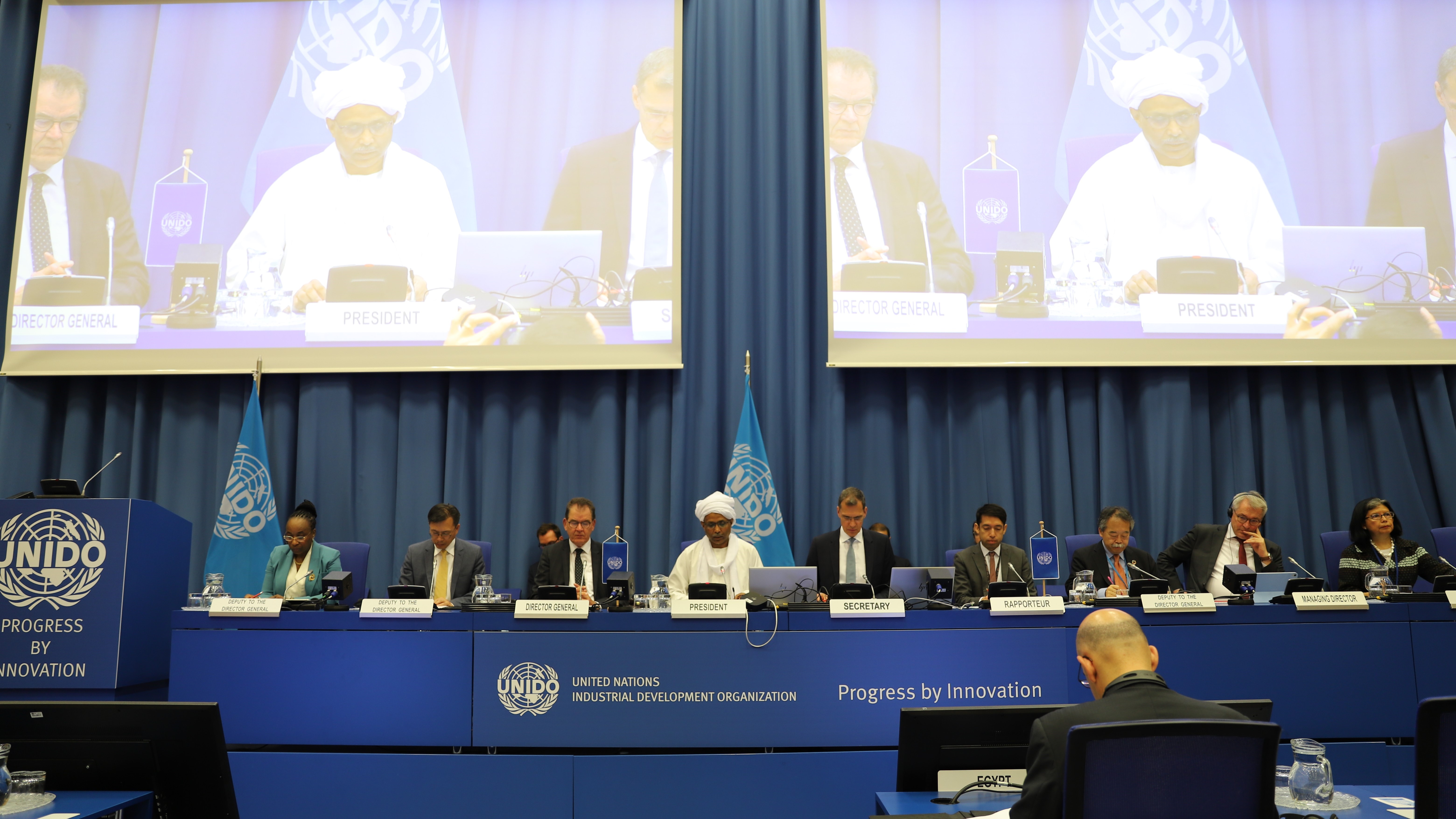Industrial Development Board adjourns with agreement
06 July 2023

VIENNA – The fifty-first session of UNIDO’s Industrial Development Board (IDB) has adjourned with agreement on a number of key decisions in preparation of the upcoming UNIDO General Conference.
The IDB comprises 53 Member States, elected for a four-year term on a rotational basis. It reviews the implementation of the work programme, the regular and operational budgets, and makes recommendations to the General Conference on policy matters. The IDB meets once a year.
In a vote of confidence in UNIDO's modernizing reform efforts implemented over the past year, the IDB adopted the consensus on UNIDO's budget for 2024-2025 which was reached at the thirty-ninth session of the UNIDO Programme and Budget Committee in May.
Director General Gerd Müller thanked Member States for prioritizing the financial security of the Organization, emphasizing that adopting the budget proposals will allow UNIDO to better respond to the increasing worldwide demand for its projects and programmes.
Members of the IDB also endorsed the UNIDO Climate Change Strategy, and requested that an action plan be drawn up in consultation with Member States to begin implementation. Müller hailed this important step as giving UNIDO “a firmer footing and a stronger mandate for climate action and decarbonization efforts”.
Progress on the Climate Change Strategy action plan will be reported at November‘s twentieth session of the General Conference. The General Conference will also consider the current reform of the UNIDO field network and the outlook on UNIDO activities in the different regions.
Addressing the IBD, Director General Müller noted that with the organizational reforms and restructuring of the past year and a half bearing fruit, it was now time to begin formulating a “Vision 2030” for UNIDO to better deliver on its sharpened focus areas and upscale project work, especially flagship initiatives, in service of the Sustainable Development Goals. “We can indeed achieve the SDGs, but only if investment channeled to these commitments is increased by at least 2% of global GDP.”